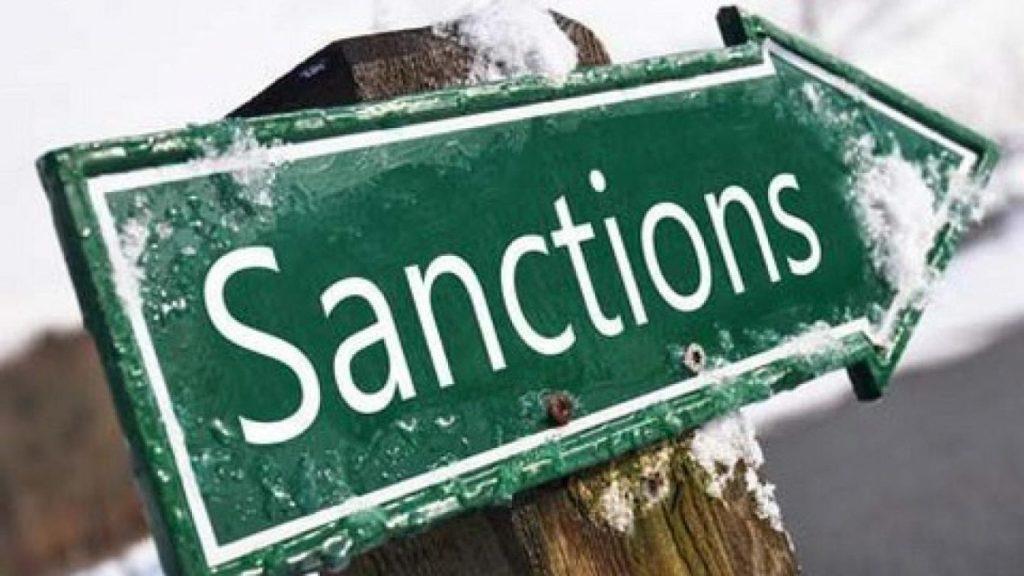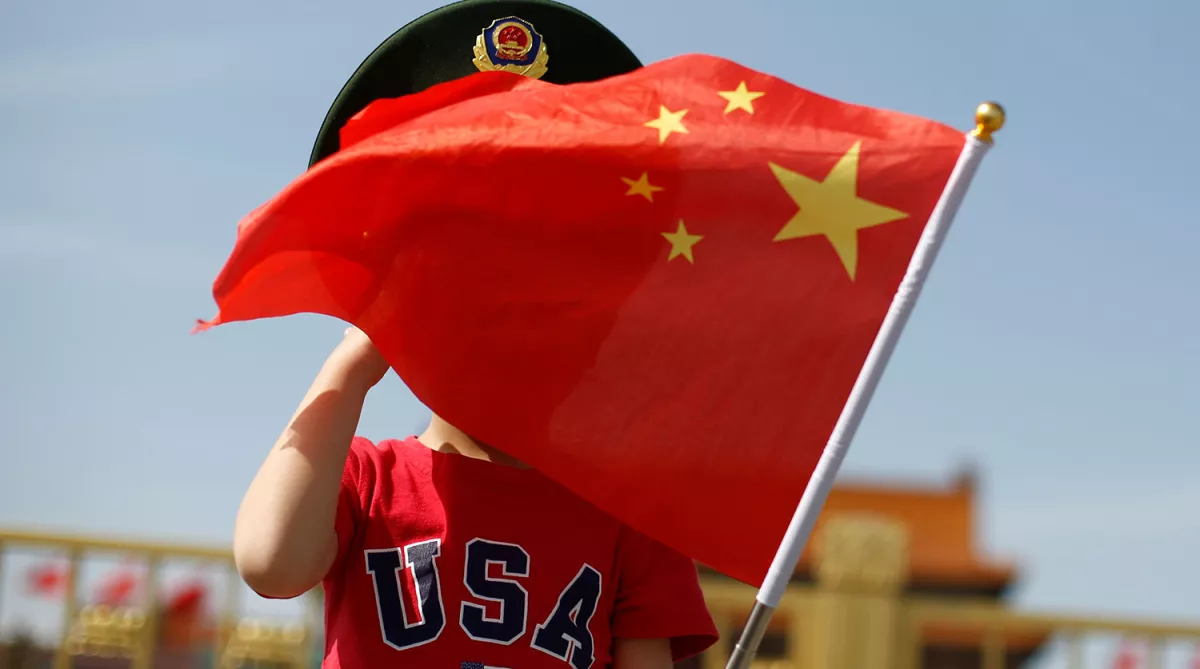Battle for global cooperation in fragmenting world Bridges vs. walls
Numerous structures that have upheld international cooperation for decades are collapsing before our eyes. The process is unfolding so rapidly and on such a large scale that it appears the world is inevitably splitting into opposing blocs once again. However, this shift is not as straightforward as it may seem.
On October 31, at the Minsk International Conference on Eurasian Security, Hungarian Minister of Foreign Affairs and Trade Péter Szijjártó warned that, if global politics is not changed soon, the world will divide into blocs. He made a similar statement at the Future Summit in New York in September. Szijjártó, along with other representatives of the Hungarian government, stressed that such a development would contradict the interests of Budapest and most other Eurasian nations. As a result, he urged global leaders to take action to steer history in a different direction: "Rather than burning bridges, we need to build them and return to Eurasian cooperation, which benefits all."
Tearing down vs. building up
This logic, and the calls for dialogue based on it, are shared by many. Some express it publicly and as loudly as representatives from Hungary, while others adopt a more restrained approach, advocating behind closed doors or in private, informal conversations. As international tensions continue to rise, the voices calling for the preservation of cooperation will likely grow louder and more confident. The arguments in favour of constructive engagement and mutual respect will be heard not only on the global stage but also in domestic political debates in many countries.
However, advocates of cooperation and dialogue are unlikely to politically outshout their ideological opponents, who will continue to push for new restrictions, bans, sanctions, and the now-fashionable policy of decoupling from geopolitical rivals. In times of heightened conflict, it is always much easier to be a hawk, appealing to emotions and demanding uncompromising stances against adversaries, than to call for reason and strategic wisdom. As the saying goes, breaking is easier than building. As history — including recent history — demonstrates, it is much easier to destroy, accompanied by so-called patriotic rhetoric, than to maintain the channels of cooperation and communication built over decades.
It is therefore not surprising that in recent years, the world has been rapidly moving towards divisions and barriers that lead to fragmentation. More and more physical barriers and tariff and non-tariff restrictions are emerging. International law and institutions are becoming increasingly dysfunctional, working only partially. Often, these institutions themselves are turning into tools of confrontation rather than cooperation. The efforts of many governments around the world are increasingly focused on finding ways to impose harsher sanctions and counter-sanctions, and less on creating favourable conditions for the free international interaction of economic actors.

Against this backdrop, diplomacy is sinking into a hopeless agony — both official and public. In some contexts, even the natural desire of people to maintain professional contacts with colleagues "on the other side" has become the target of harsh public attacks and condemnations. Meetings at the expert level, aimed at preserving communication channels and discussing ways to reduce risks and de-escalate overall tensions, often turn into a media witch-hunt against their participants. It is no surprise that fewer and fewer are willing to continue such work from all sides, while contemporary McCarthyism continues to grow.
These processes are undeniable. They no longer remain hidden in the backstage of global politics but unfold right before our eyes. For example, some political circles in the West openly call for the construction of a new, full-fledged "Iron Curtain" in the heart of Europe. In reality, this curtain is already taking shape in the form of sanctions and logistical semi-blockade on Belarus' western borders, which is tearing apart the entire cultural and economic fabric that has supported regional stability and good-neighbourly relations for decades.
The endless and increasingly chaotic sanctions and other restrictive measures are not going unanswered by those who are targeted by them or maybe in the future. As a result, there is a growing drive to create alternative mechanisms for international cooperation — financial and logistical infrastructures that would not be directly dependent on the political decisions of Western countries. This means the inevitable erosion of the Bretton Woods system, established after World War II, which relies on the US dollar and institutions such as the IMF and the World Bank. Ultimately, this is laying the groundwork for a new form of bloc mentality in international relations.
A striking military-political reflection of these trends is the near-total hollowing out of the idea of European neutrality. The historic decisions by Finland and Sweden to abandon their long-standing policy of non-alignment and join NATO not only shifted the strategic balance in the Baltic Sea region but also, to some extent, reshaped the mental map of European politics. Many coordinates that were once seen as constants are now taking on new meanings. This is further highlighted by the significantly changing discussion of neutrality in Switzerland.
Important nuances
It seems that these surface-level trends are what Péter Szijjártó is addressing when he calls for preventing a complete bloc division on the European continent and globally. One cannot help but agree with the essence of his call, as these processes promise little good not only for Hungary but for the broader Eurasian space. However, it seems premature to draw a final conclusion from this observation. Analytical precision requires more careful consideration of certain details when answering the question of how inevitable the fragmentation of the world into new opposing blocs really is.
Despite the obviousness of the processes described above, their dynamics do not always appear linear. For example, it is clear that more and more countries and peoples are seeking to move away from an exclusively West-centric model of international development. In this sense, a global majority is indeed forming in favour of rejecting unipolarity. However, this majority, which is often cited by countries openly challenging the West geopolitically, does not want a division of the world into blocs. Their interests do not lie in bloc confrontation with NATO or other Western organizations, but in maximizing the diversification of opportunities for their own development. They seek to expand their manoeuvring space in international affairs and, through this, create new sources of growth while reducing their own risks.
This logic is fundamentally different from that of bloc thinking. Therefore, the widely used term "Global South," though geographically inaccurate, effectively highlights the geopolitical characteristic of the countries it describes: they do not fully align with the political agenda of either the West or the East.
One could certainly argue that in the mid-20th century, most countries and peoples did not wish for the world to be divided into opposing military-political and economic blocs. This is precisely why the Non-Aligned Movement emerged, reaching its peak during the Cold War. However, this did not prevent the establishment of a nearly impenetrable "Iron Curtain" in Europe for many years, with its dividing influence felt across the entire world. And even many countries that wished to remain non-aligned were, at times, forced to make a stark choice.
There is a high probability that a similar scenario could unfold this time as well. At least, we are witnessing something akin to this in Europe right now, even though many European states are objectively uninterested in any kind of bloc division. However, tectonic shifts in international relations are not particularly concerned with their preferences, pushing them to make decisions. As competition between the United States and China intensifies, similar processes are likely to strengthen in other parts of the world, especially in the Asia-Pacific region.

In any case, it is important to note the unwillingness of the global majority to align themselves with either the West or the East. Many states in this category today possess significant resources, and their growth potential is even greater. Therefore, they should not be viewed as mere pawns on the geopolitical chessboard.
Understanding nuances for better solutions
These details are important for a clearer understanding of what the unfolding processes could realistically lead to and for reducing the likelihood of the most dangerous consequences. Despite the prevailing trend toward increasing confrontation and fragmentation, there remain important "shades of grey." In fact, multiple logics for future development are intertwined. And, for now, it is difficult to predict with certainty which patterns and intricacies this will lead to in terms of the world's future structural organization.
This is a case where it is especially important to acknowledge such uncertainty, in order to avoid getting caught up in constructing future models based on false confidence in the linear progression of history. Models that, for instance, draw simple parallels and analogies with the Cold War era, as many scholars, commentators, and officials tend to do today. Or, conversely, those that assume the inevitable emergence of future multipolarity, built on strong and largely self-sufficient macroregions.
The thesis of the future multipolarity of regions was notably discussed at the recent Minsk International Conference on Eurasian Security. It was even proposed as a starting point for the development of the Eurasian Charter of Diversity and Multipolarity in the 21st Century, initiated by Belarus. Substantively, this thesis is quite different from the idea of an impending bloc division of the world. In fact, one could argue that these two theses contradict each other.
Therefore, it is important not to rush to conclusions about what the future may look like. It is more crucial to understand how major trends align with the "shades of grey" that reflect the real interests of the global majority. Only by doing so can we, as Péter Szijjártó rightly suggests, find ways to build new bridges of cooperation and preserve the old ones.








